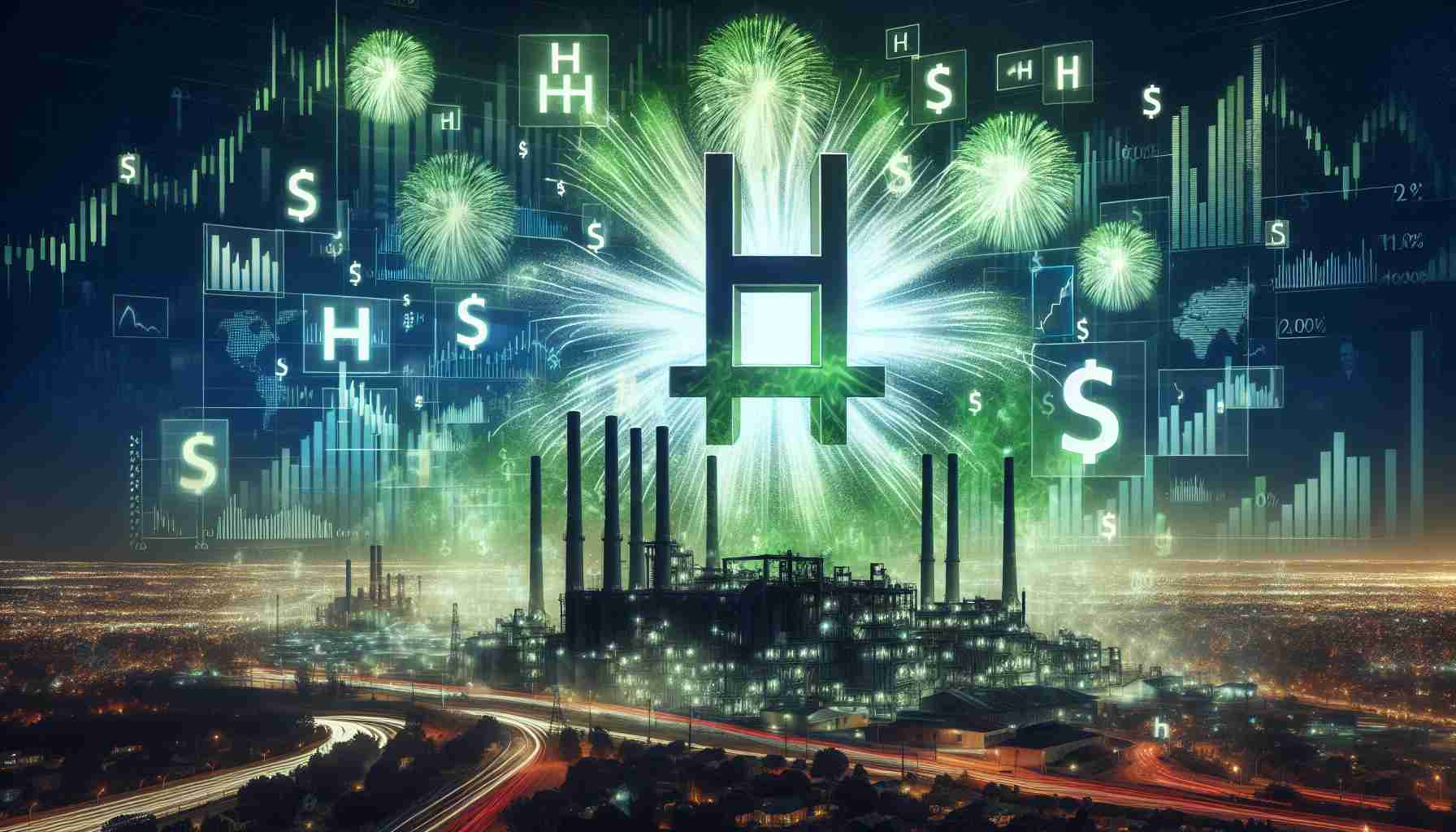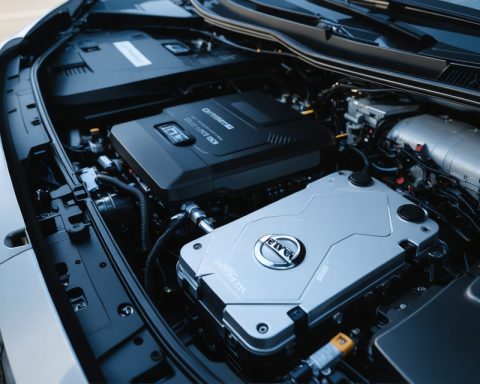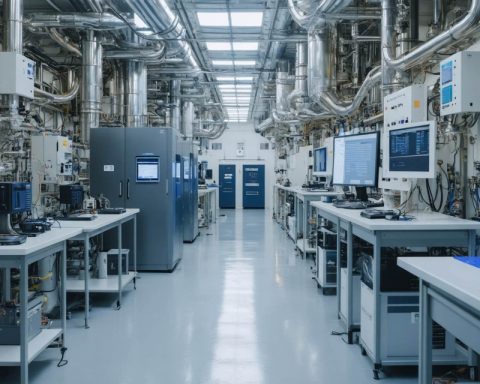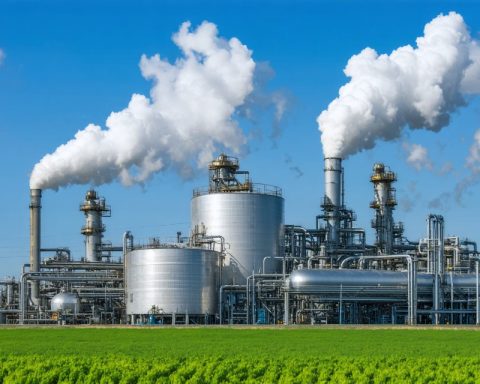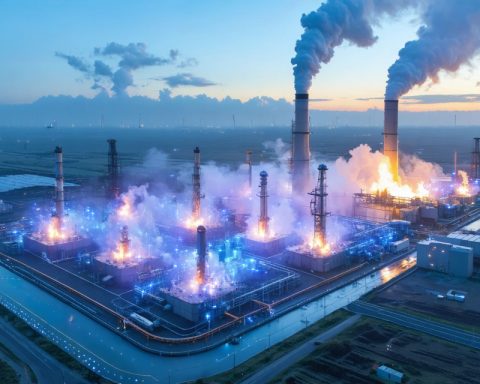The Department of Energy’s recent decision to allocate up to one billion dollars for increasing hydrogen production in the Midwest has sparked a lively debate about its environmental impact. This move is hailed by many as a double win for creating eco-friendly jobs and cutting carbon emissions. However, not everyone is on board with this ambitious plan.
Critics Argue Hidden Motives
While the government’s investment aims to propel the green energy sector forward, local environmental activists have raised concerns. They recently gathered in Northwest Indiana, criticizing what they see as the promotion of “dirty hydrogen.” These advocates suggest that the initiative may primarily benefit oil and gas companies, effectively allowing them to maintain their current operations under the guise of a green revolution.
Community Voices Call for Caution
During the rally, passionate speeches highlighted skepticism about hydrogen’s sustainability. Activists worried that this energy source could divert attention and resources away from the true renewable energies needed to combat climate change. They urged for a transparent review of hydrogen’s potential environmental ramifications.
Promises Versus Concerns
Proponents of the plan argue that the infusion of funds will not only reduce emissions but also generate a multitude of new jobs, thereby boosting the regional economy. However, dissenting voices remain firm, wanting more emphasis on genuinely clean energy solutions that decisively break from fossil fuel dependencies.
The debate over hydrogen’s role as a green energy source is far from over, as communities push for a transition that aligns with their environmental ideals.
The Untold Side of Hydrogen: What You Need to Know
The conversation surrounding the Department of Energy’s recent initiative to boost hydrogen production has taken intriguing turns, uncovering layers that weren’t apparent at first glance. While the Midwest celebrates the promise of eco-friendly jobs and lowered carbon emissions, there are crucial, unspoken facets of this development that deserve attention.
Emerging Questions and Their Implications
As the U.S. strives to transition to cleaner energy sources, a pivotal question arises: Is hydrogen truly a sustainable option, or is it just another facade? The term “dirty hydrogen” is gaining traction, primarily when hydrogen is produced from natural gas rather than renewable sources. While there’s potential in hydrogen, especially when generated from wind or solar power, the majority currently comes from fossil fuels, raising concerns about its genuine sustainability.
Imagine a scenario where communities depend on advertised clean energy, only to realize later that they remain tethered to fossil fuel industries. This paradox complicates the energy landscape and poses a risk to the genuine pursuit of carbon-free solutions.
Economic Boost or Potential Pitfall?
With promises of job creation and economic revival, it’s essential to scrutinize the types of jobs being proposed. Are these long-term, sustainable jobs, or temporary positions that offer little economic stability after completion? Moreover, the source of this government funding raises ethical queries. Could these resources be better utilized to directly enhance solar and wind technologies, offering genuinely renewable solutions?
Community Concerns and the Need for Transparency
At the heart of this debate lies the community’s call for transparency. Citizens argue for clarity on exactly how hydrogen will alter their daily lives and local ecosystems. One unforeseen consequence of large-scale hydrogen production could be water resource depletion. The process of electrolysis, which can produce green hydrogen, requires a significant amount of water—a pressing concern for areas where water scarcity is already an issue.
Communities are rightfully demanding comprehensive environmental impact assessments to ensure that no hidden costs are overlooked. As the world seeks greener pastures, the path we choose could lead to unforeseen environmental or social challenges without thorough oversight.
Controversies and New Directions
The conversation doesn’t end with hydrogen’s potential; it extends to how we define and achieve true sustainability. Do investments in hydrogen represent a progressive stride or a diversion from genuinely renewable resources? This question has broader implications for policy direction and funding priorities.
Hydrogen’s role in the clean energy dialogue invites a re-examination of our commitment to carbon-neutral futures. As communities and governments navigate this complex landscape, transparency and genuine sustainability must remain the guiding principles.
For more insights into sustainable energy practices, consider visiting National Renewable Energy Laboratory and U.S. Department of Energy.
